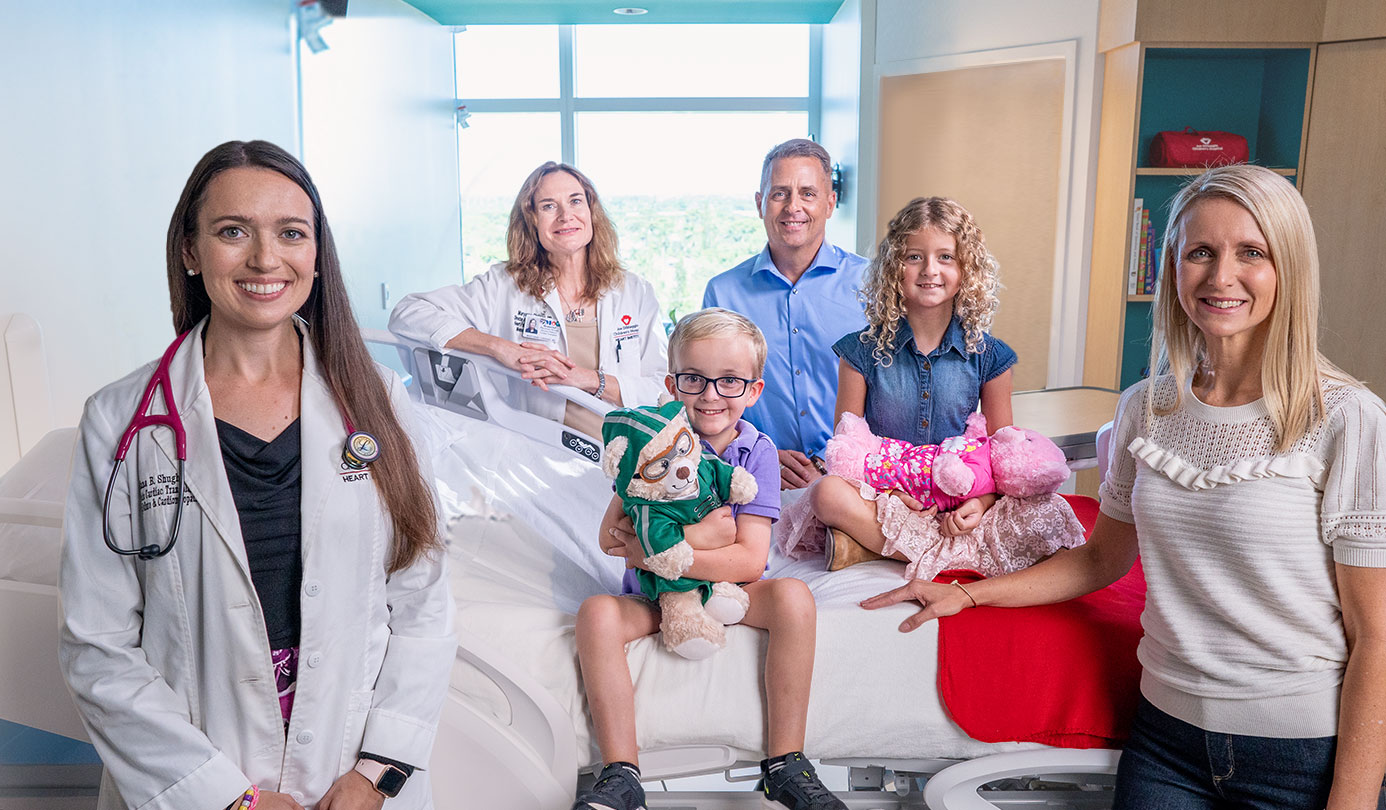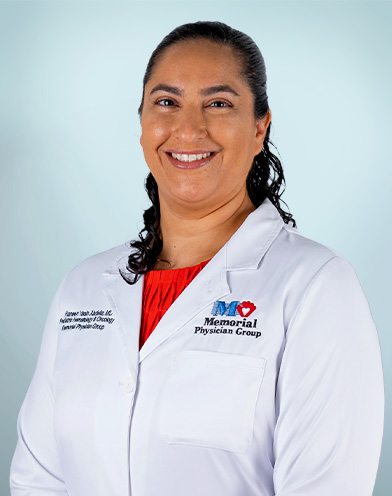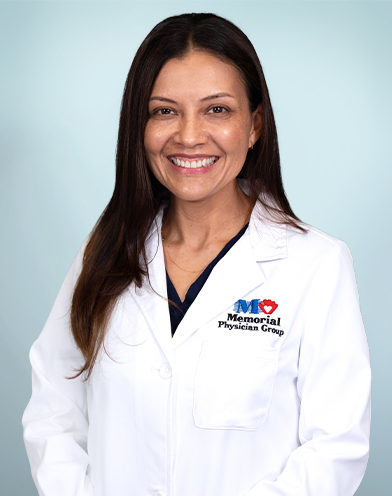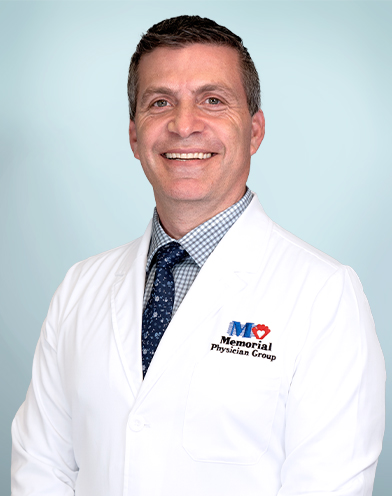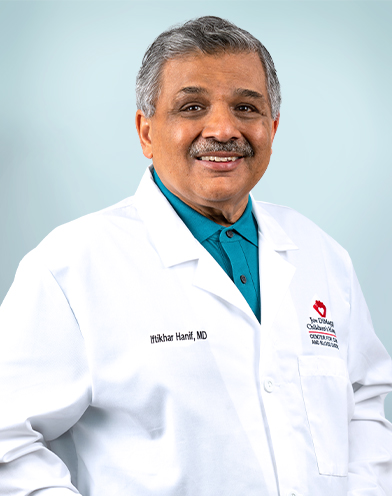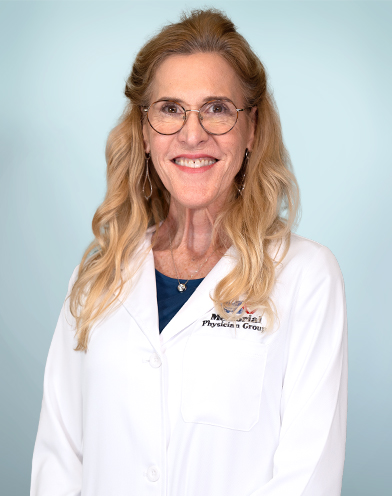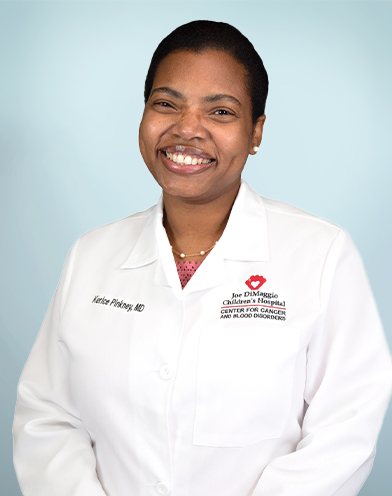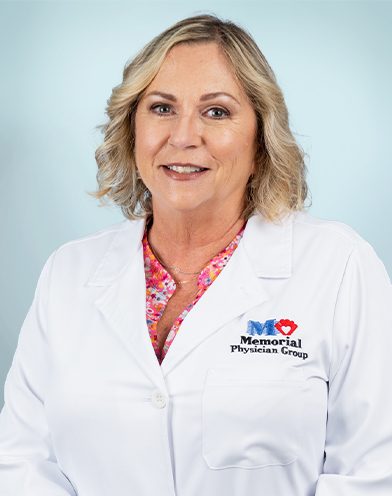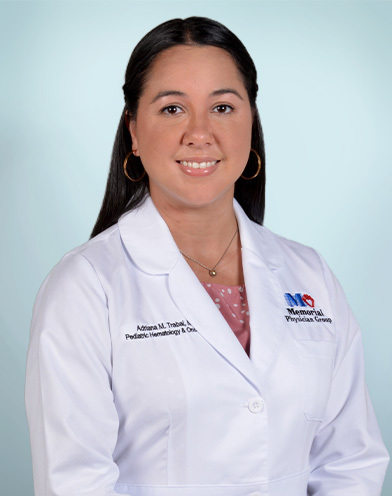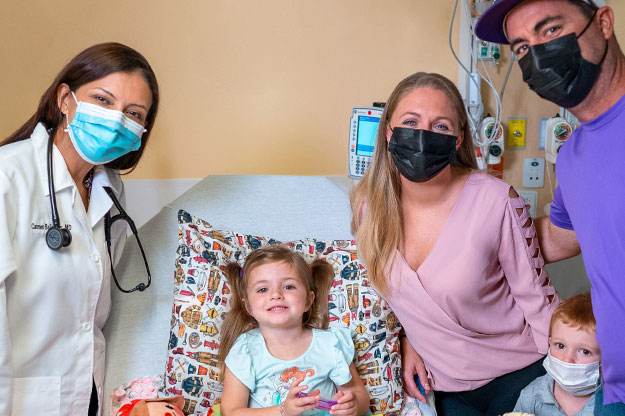
Cancer and Blood Disorders
Our pediatric oncology specialists diagnose and treat children with a variety of cancer and blood disorders.
Family-Centered Care for Your Child
We know how scary a cancer or blood disorder diagnosis can be. That’s why we take great pride in providing compassionate, patient- and family-centered care for children, adolescents and young adults with a range of conditions—from the rarest of childhood cancers to the most common blood disorders in children.
Led by nationally recognized, board-certified hematologists/oncologists, our team of cancer and blood disorder specialists are expertly trained to treat a variety of pediatric malignancies and blood disorders.
Call to learn more or to make an appointment:
954-265-2234Here for Your Child on Every Step of the Journey
Our hands-on approach allows us to work closely with patients and their families to develop an effective, personalized treatment plan, with the ultimate goal of getting our patients on the road to recovery.
Read our FAQs to help prepare your family for your initial visit to our facility.
Learn What to ExpectIn addition to our medical services, we provide patients and their families with comprehensive pediatric cancer support services.
Ways We Provide SupportOur multidisciplinary team works closely with each patient and their family to relieve physical, psychological, social and spiritual distress.
Learn About Palliative CareWe know that one cancer treatment approach does not fit all. Recent advances in pediatric hematology/oncology have pointed to the benefits of tailoring cancer and blood disorder treatment to meet the specific needs of each child. Our hands-on approach allows us to work closely with patients and their families to develop an effective, personalized treatment plan, with the ultimate goal of getting our patients on the road to recovery.

Our Personalized Approach to Cancer Care
Learn About Our Reputation
Cancer Survivorship Program
We know cancer survivorship is a life-long journey. That’s because childhood cancer survivors require specialized, long-term follow-up care and support to stay healthy years after their treatment has ended.







Call to learn more or to make an appointment:
954-265-2234